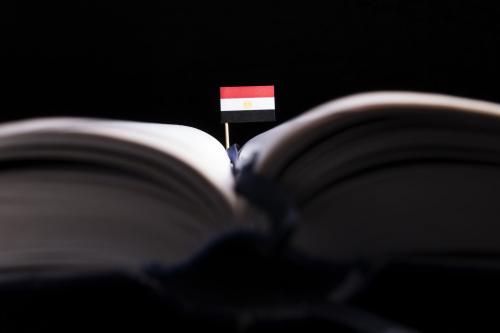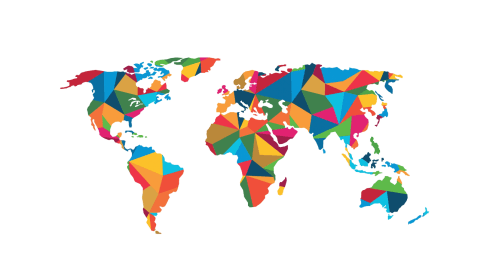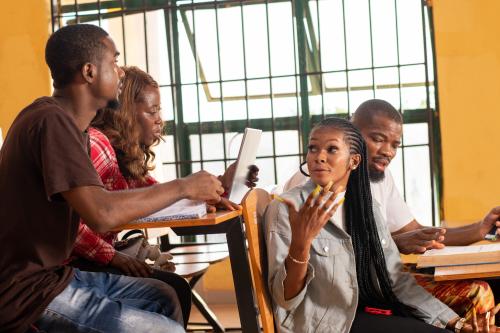U.S. House of Representatives subcommittee holds hearing on the deteriorating situation in South Sudan
South Sudan’s challenges continue to vex policymakers and the international community. This week, it was reported that on July 7 seven American diplomats in Juba were attacked by the South Sudanese presidential guard. Though there were no injuries, the attack was serious. Foreign Policy reports that, “Three separate clusters of South Sudanese soldiers unloaded on the unarmed diplomats’ vehicles. Eventually, a U.S. Marine rapid response team from the embassy had to fetch three of the waylaid Americans and their South Sudanese driver.” There are conflicting reports over whether the attackers knew the cars’ passengers were Americans. The diplomats did not identify themselves as such, but each car had an American flag in the windshield.
In addition, the U.S. House of Representatives Subcommittee on Africa, Global Health, Global Human Rights, and International Organizations held a hearing to discover the causes into the persistent violence and instability, inquire into violent incidents against foreigners such as the July 11 Terrain Assault, and consider U.S. interventions or sanctions to address them. The various U.S. representatives questioned Special Envoy to Sudan and South Sudan Donald Booth (written testimony here) not only on the U.S. experience there but also the potential for sanctions and why the Obama administration had not yet implemented them. Associate Director of Policy at the Enough Project Brian Adeba and Senior Advisor to the President of the U.S. Institute of Peace Princeton Lyman also testified. Booth supported an arms embargo, but emphasized that without international support, especially from the countries on the U.N. Security Council (whose support is tenuous), the threat of an embargo becomes nothing more than a threat. Another major question discussed was what role rebel leader Riek Machar should play in efforts toward peace—Booth noted that mistrust between Machar and Kirr is a driving factor in the violence, but Lyman emphasized that peace cannot be maintained without Machar’s supporters at the table.
In related news, on Thursday, September 8, the United Kingdom announced it would be sending 100 more peacekeeping troops to South Sudan, adding to the 300 already stationed in the fragile country. However, according to The Guardian, increased troop numbers and “Western interference” are resented by President Salva Kirr.
Africa watchers have mixed reviews on the G-20 in Hangzhou and what it means for the continent
World leaders descended on Hangzhou, China on September 4 and 5 for the 11th G-20 summit. While the only African country in the G-20 is South Africa, African issues were on the agenda. Perhaps the biggest commitment came in the summit’s emphasis on African industrialization: Several points in the published communique emphasized industrialization in Africa and other least developed countries (LDC), even launching the “G-20 New Industrial Revolution Action Plan” and “G-20 Initiative on Supporting Industrialization in Africa and LDCs.” After the summit, Chinese President Xi Jinping re-emphasized the G-20’s and China’s (Africa’s biggest trading partner) commitments to African industrialization.
However, skeptics remain. Voice of America reported that the executive director of African Progress Panel, Caroline Kende-Robb, called the G-20’s progress on African issues “disappointing” and emphasized that member countries must now focus on following through on their commitments—a task which has not always been done in the past. While Robert Kappel, president emeritus and a senior researcher at the German Institute of Global and Area Studies, lauded Chancellor Merkel’s calls for German leadership in investment on the continent, he similarly found the summit’s outcomes for Africa disappointing. In particular, he stated, “The summit has not tackled the problems of sustainable development, it has no ideas on how to solve the refugee crisis in Africa, it has no ideas of moderating the problems of the climate change, and it has no ideas on how to support Africa’s structural transformation. All the measures taken at the G-20 summit were just oriented towards the development of the G-20 nations, the OECD countries and some other countries.”
Former Nigerian President Olusegun Obasanjo echoed Kende-Robb’s calls for concrete action in an editorial in Project Syndicate calling for world leaders to focus on four themes: 1) acknowledging the interrelation of energy, climate, and development by ending subsidies of fossil fuels, 2) fighting tax evasion, 3) supporting African agriculture and fisheries, and 4) closing the energy financing gap with support for renewable energy.
Political risks obscure positive economic news in South Africa
On Tuesday, South Africa’s statistical office announced that the economy avoided a second recession in seven years, growing its gross domestic product (GDP) at 3.3 percent this quarter, compared with the 1.2 percent contraction in GDP seen last quarter. The rand responded favorably to the news, gaining 2.6 percent against the dollar on Tuesday alone—marking its best performance in a single day since June. Strong outputs in mining and manufacturing, which expanded by 11.8 percent and 8.1 percent respectively, drove the growth in GDP. The agriculture sector, on the other hand, contracted for the sixth quarter in a row, by 0.8 percent over the past three months. The declines in agricultural output were not unexpected given that the country is facing a historic drought “with no end in sight,” according to a government task force statement released on Thursday.
The drought, coupled with low commodity prices and weak export demand has led the central bank to report that the South African economy will grow slowly this year—despite the clear need for growth to reduce the high unemployment rate (at 27 percent) and ward off a credit rating downgrade. Minister of Finance Pravin Gordhan has been working to improve growth and investor confidence since he returned to his post in December 2015, however, in recent weeks he has been the subject of investigations from the Hawks, a police unit closely aligned with President Zuma, as to whether he was in charge of a rogue unit within the tax service to spy on politicians—a charge which many observers including the opposition believe is a political ploy to remove Gordhan from his position. Meanwhile, several other divisive issues have emerged within the ruling African National Congress party lately—especially surrounding Zuma’s relationship to the Guptas, a family deeply engrained in South African business, as well as Mineral Resources Minister Mosebenzi Zwane for misrepresenting cabinet recommendations on a banking oversight committee—further undermining the African National Congress party just as it suffered major losses in recent elections.




Commentary
Africa in the news: US concern over South Sudan, the G-20’s mixed reviews, and South Africa’s positive growth trends
September 9, 2016